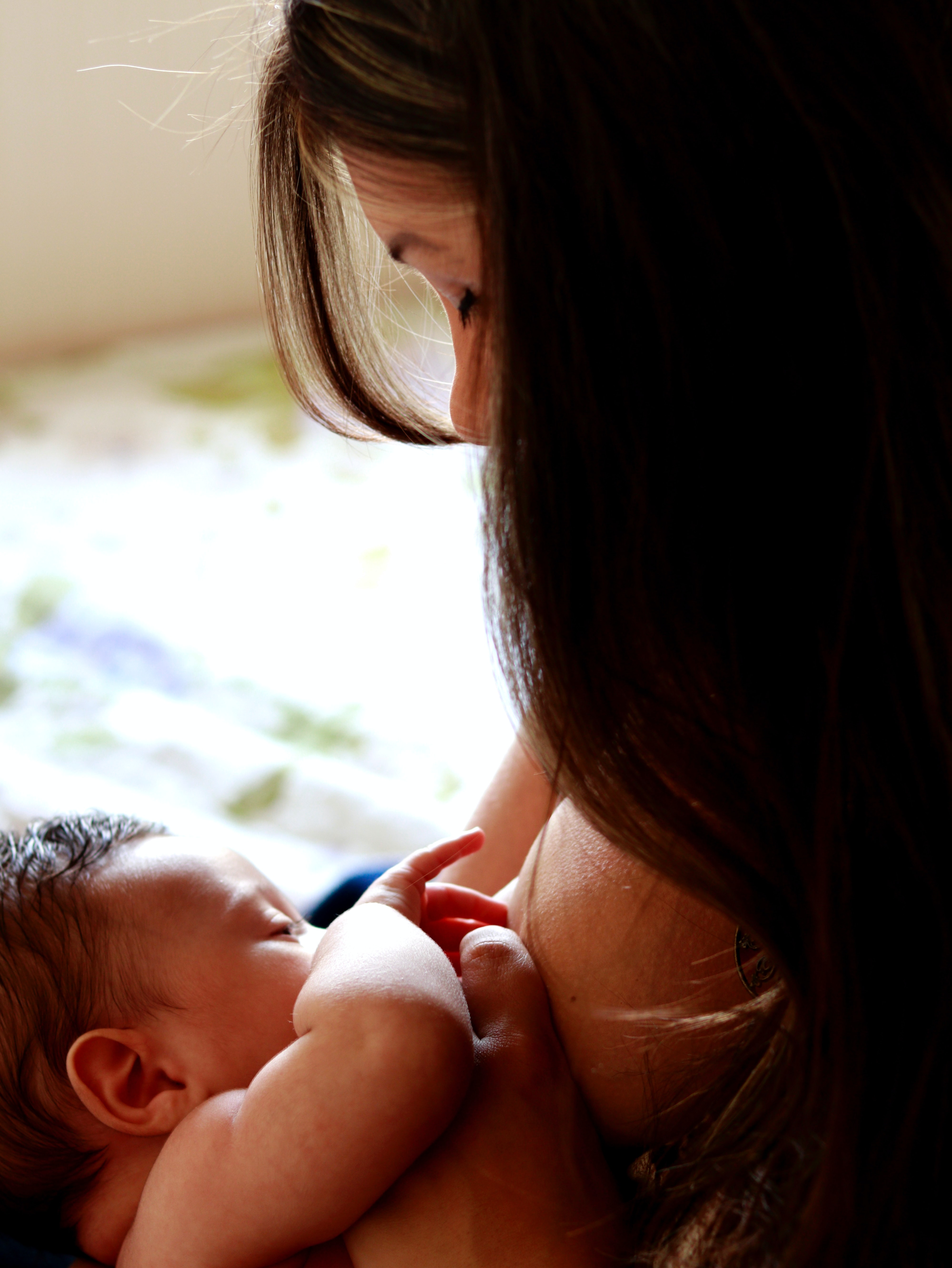
In my career as an obstetrician, I’ve delivered more than 6,000 babies. Though new mothers are often eager to breastfeed their babies, many struggle with challenges. With mothers sometimes being sent home only 12 hours after giving birth, they often lack the professional guidance that new parents used to receive in hospitals. Here are my essential tips, addressing some of the most common questions about breastfeeding.
I’m struggling with latching. What should I do?
Latching on is important for both mom and baby. Years ago we could keep a mother and newborn in the hospital until any breastfeeding problems were addressed before sending the family home. Today, with shortened hospital stays, mothers and babies are often discharged before latching is established.
It is important to know what must happen in order for a baby to be nourished. Breastfeeding is not like sucking on a straw that barely extends beyond your lips. For breastfeeding to work, about 2.5 cm of nipple and areola must be in the baby’s mouth. That is so it reaches the baby’s soft palate, where normal suction occurs. This helps preserve Mom’s health; the ducts in the areolas get drained, making mastitis and plugged ducts less likely.
To make latching easier, put the baby’s bottom lip at the bottom of your areola and then put your nipple to the baby’s lips. For most mothers, the edge of your areola and the edge of the baby’s lip should be near.
It’s also important to recognize that if you are worried or distressed—if you think you won’t be able to nurse your baby—you will be less likely to be successful. If you have confidence that you can nurse your baby, you will have a better chance at success.
I use a breast pump. How long can I store the milk?
Fresh breast milk can be kept up to four hours at room temperature (77 degrees F), up to four days in the refrigerator (40 degrees F), and up to six to twelve months in the freezer (0 degrees F). Any leftover milk from feeding should be consumed by the baby within two hours or thrown away. Frozen breast milk thawed should be used within one to two hours and stored in the refrigerator for up to one day. Never refreeze pumped breast milk.
How long should I nurse the baby each time I feed them?
The most important thing about nursing is to be flexible. Once established, your options are endless. I had one patient who nursed her child once a day from one breast for three years.
The baby needs to eat enough to gain 5-7 ounces each week. The baby would double its birth weight by six months and triple its birth weight by one year. Contrary to some recommendations that nursed babies only be given the breast, you can breast and bottle feed. It’s important to get help from nurses or lactation consultants in the first three days. Studies show that women who have c-sections have less trouble with babies failing to thrive (not gaining weight), and subsequently being hospitalized. This isn’t much of a mystery if you consider that women who deliver vaginally are sometimes sent home within 12 hours of delivery — with very little time to receive instruction from professionals about getting started breastfeeding. C-section patients will likely be in the hospital longer.
How many times a day should I nurse my baby?
You need to feed your baby often enough so that it gains weight. Be aware that younger infants will eat more often, taking less milk at each feeding. Whenever your baby cries it is a good time to offer the breast. In my experience, 95 percent of crying babies are hungry.
Should I wake my baby up for feeding?
I would recommend against waking your baby for feeding. However, there is one very important exception. If your baby is small and nurses every two to three hours throughout the day and night, your baby is unlikely to go four or five hours without waking up to nurse. In this situation, I would try waking your baby after four or five hours to be sure that they are okay.
Is it safe to take medications while breastfeeding?
This depends upon what medications you are talking about. You may safely take prenatal iron and vitamins, most over-the-counter medications, Tylenol, antibiotics such as erythromycin or gentamicin, and thyroid replacement medications. If you have any questions or doubts about the safety of a medication while breastfeeding, please ask your doctor.
Remember, if you have any questions, there’s no need to feel alone. There are professionals available to help you, so don’t be afraid to reach out for advice.
Feature Image: Filip Mroz via Unsplash
RELATED STORIES:
6 Things I Wish I Had Known about Breastfeeding before Giving Birth
The One Thing I Wish Someone Would Have Told Me about Breastfeeding
When Should You See a Breastfeeding Counselor?











